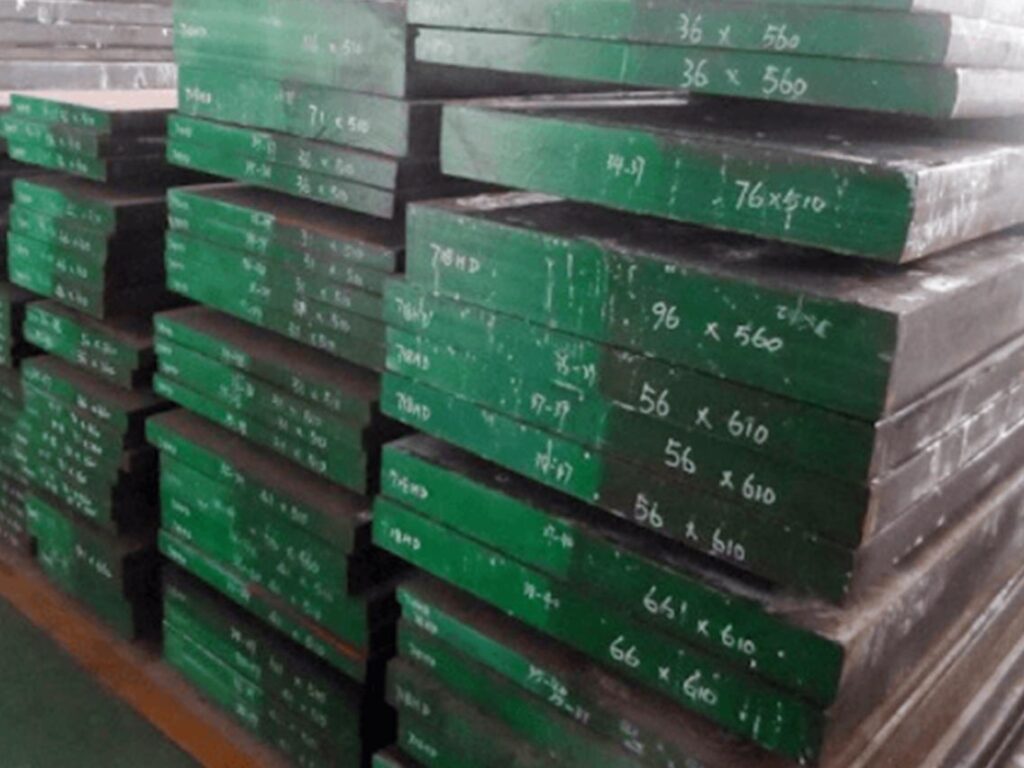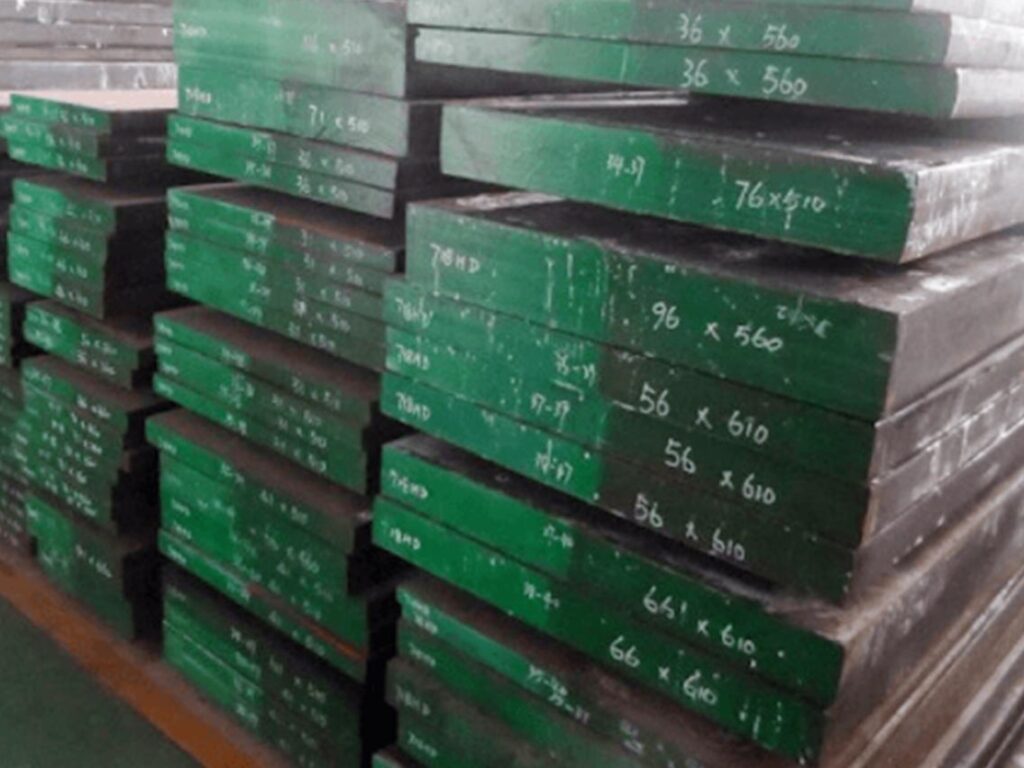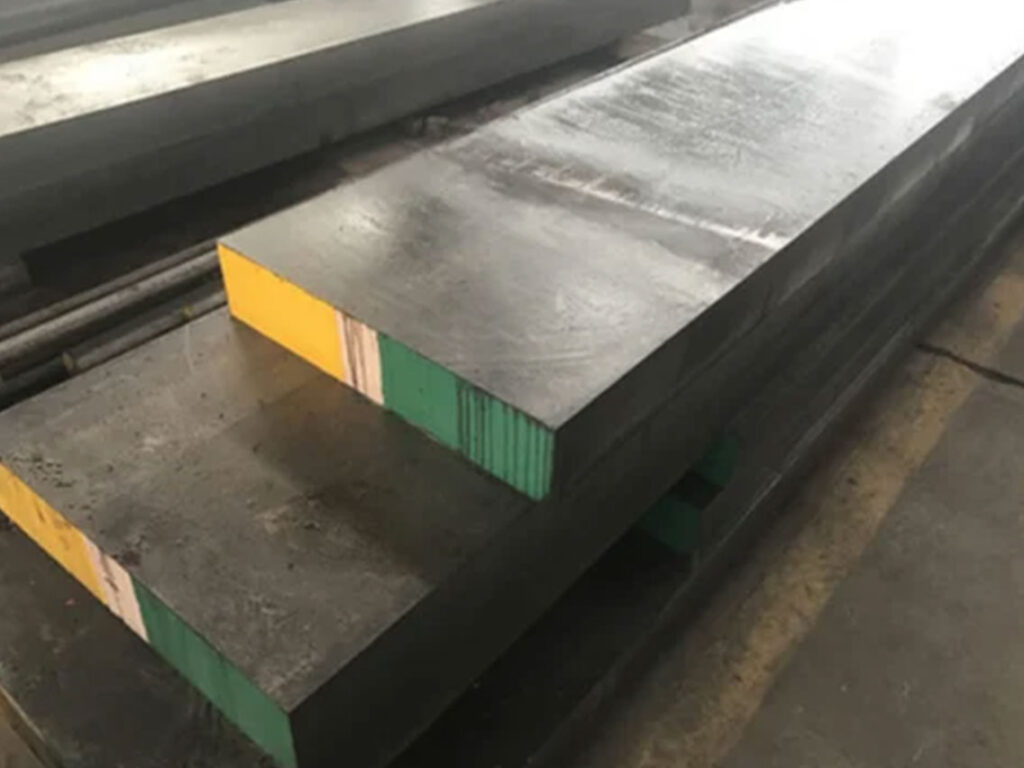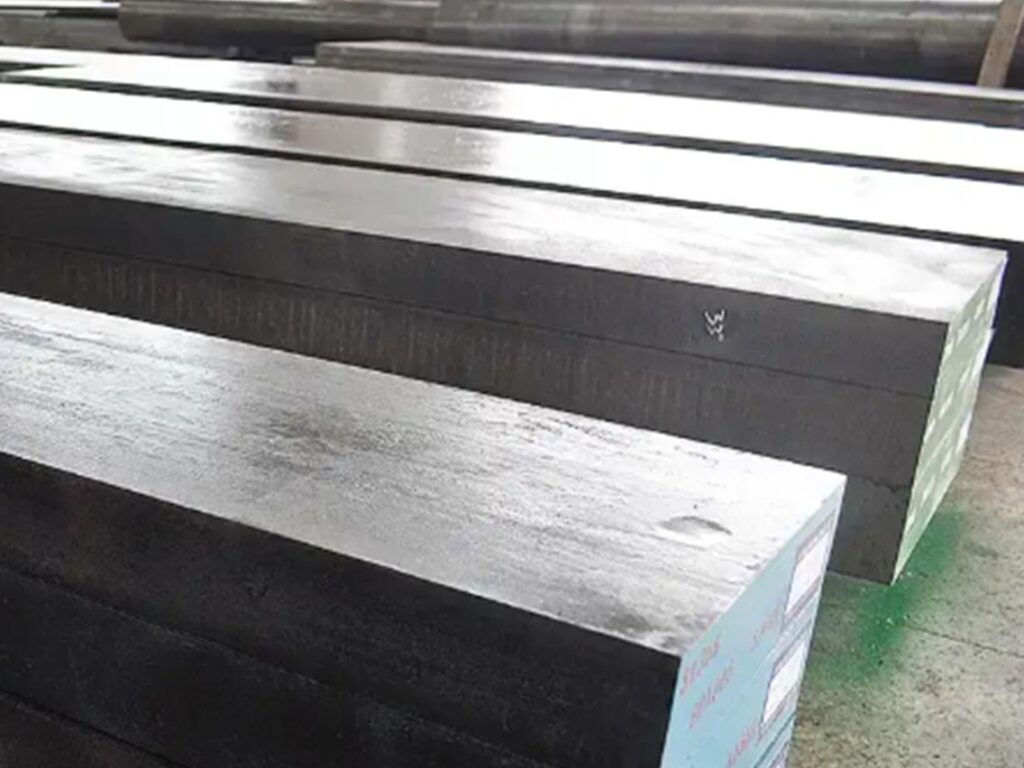718/1.2738 Plastic Mold Steel

718/1.2738 Plastic Mold Steel
718 Plastic Mold Steel is a high-performance alloy steel widely used in the manufacturing of precision molds, especially for plastic injection molds and die-casting molds. It is known for its excellent wear resistance, corrosion resistance, and machinability, making it suitable for molds that require high durability and precision.
Product Parameter Table
|
Property |
Value |
|
Chemical Composition |
C: 0.38-0.43%, Mn: 0.80-1.00%, Si: 0.80-1.00%, Cr: 1.90-2.50%, Mo: 0.30-0.50%, Ni: 1.00-1.50%, V: 0.05-0.15%, P: ≤ 0.03%, S: ≤ 0.03% |
|
Hardness (HRC) |
40-44 HRC (after heat treatment) |
|
Tensile Strength |
≥ 1600 MPa |
|
Yield Strength |
≥ 1400 MPa |
|
Elongation |
≥ 12% |
|
Impact Toughness |
≥ 30 J (Charpy impact test) |
|
Thermal Conductivity |
25 W/m·K |
|
Coefficient of Thermal Expansion |
10.5 × 10^-6 /°C |
|
Maximum Hardened Depth |
3-4 mm (after quenching and tempering) |
|
Machinability |
Good (Easy to machine and polish) |
Application
1. Injection Molds:718 steel is a highly valued material in the production of injection molds, particularly when it comes to crafting complex and high-precision plastic parts. As a premium mold steel, 718 steel is well-regarded for its ability to maintain dimensional stability under the intense pressures of injection molding. It is a preferred choice for industries that demand both durability and precision, such as the automotive, consumer electronics, and medical device sectors. The steel’s resistance to wear and ability to maintain its strength at high temperatures make it the go-to option for injection molds that are subjected to continuous stress and heat.
2. Die-Casting Molds:When manufacturing die-casting molds, particularly for metals such as aluminum, zinc, and magnesium alloys, mold steel 718 stands out for its exceptional wear and heat resistance. Die-casting processes often involve extreme temperatures and pressures, and 718 steel’s excellent thermal stability makes it the ideal mold steel for molds exposed to such conditions. The material’s durability ensures longevity and minimal deformation, making it a favorite in high-performance die-casting applications across industries that require precision and quality in their metal castings.
3. Precision Molds:Precision molds, which demand an unparalleled level of accuracy and a smooth surface finish, also rely on mold steel 718. Whether for creating intricate plastic components, such as mobile phone cases, electronic enclosures, or complex automotive parts, this steel offers the exact properties needed for superior mold performance. Its consistent ability to achieve fine detail and maintain the integrity of complex designs makes it a top choice for industries where high-quality, detailed products are essential.
4. Hot Runner Systems:Due to its excellent thermal stability, 718 steel is also widely used in hot runner systems for injection molding. These systems require materials that can withstand repeated cycles of high temperatures and pressure, making 718 steel an ideal mold steel for such applications. The material’s ability to resist thermal expansion and maintain its strength at elevated temperatures ensures that the hot runner system performs consistently throughout high-volume production runs, contributing to high-quality output and efficient manufacturing.
5. Tooling for High-Volume Production:718 steel is an excellent choice for tooling and molds used in high-volume manufacturing. Its ability to withstand repeated cycles without significant wear makes it a preferred material for large-scale production of plastic components in various industries. The durability and longevity of mold steel 718 ensure that tools can be used in continuous production without the need for frequent replacements, reducing downtime and costs associated with maintenance.
6. Molds for Chemical-resistant Parts:With its superior corrosion resistance, mold steel 718 is commonly used for producing molds that manufacture parts exposed to harsh chemical environments. Its exceptional resistance to oxidation and corrosion makes it ideal for applications in industries such as pharmaceuticals, food processing, and chemicals, where molds must endure exposure to corrosive substances. This steel’s durability in such environments ensures the production of high-quality, chemical-resistant parts that maintain their integrity over time.
Customer Testimonials
Durable and Precise
“718 steel is ideal for our injection molds. It’s durable and maintains precision even after long production runs, ensuring high-quality, intricate parts without frequent mold replacements. This reliability is crucial in industries where accuracy and consistency are essential.”
Corrosion Resistant
“We use 718 for die-casting molds, and its corrosion resistance is excellent, even under high heat and pressure. It effectively withstands exposure to molten metals, ensuring longevity and reducing maintenance costs.”
Easy to Machine
“718 steel is easy to machine, which makes it perfect for creating complex and precise mold designs. Its machinability ensures the production of detailed molds with tight tolerances, which is crucial for industries like electronics and automotive.”
Great for High-Volume Production
“718 steel is reliable for high-volume molds, maintaining quality across thousands of cycles. It performs consistently, ensuring efficiency in mass production with minimal downtime or mold degradation.”
Excellent Heat Resistance
“718 steel handles extreme temperatures well, extending mold life and boosting productivity. Its heat resistance ensures that molds remain stable under high temperatures, reducing the need for frequent replacements and enhancing overall output.”





